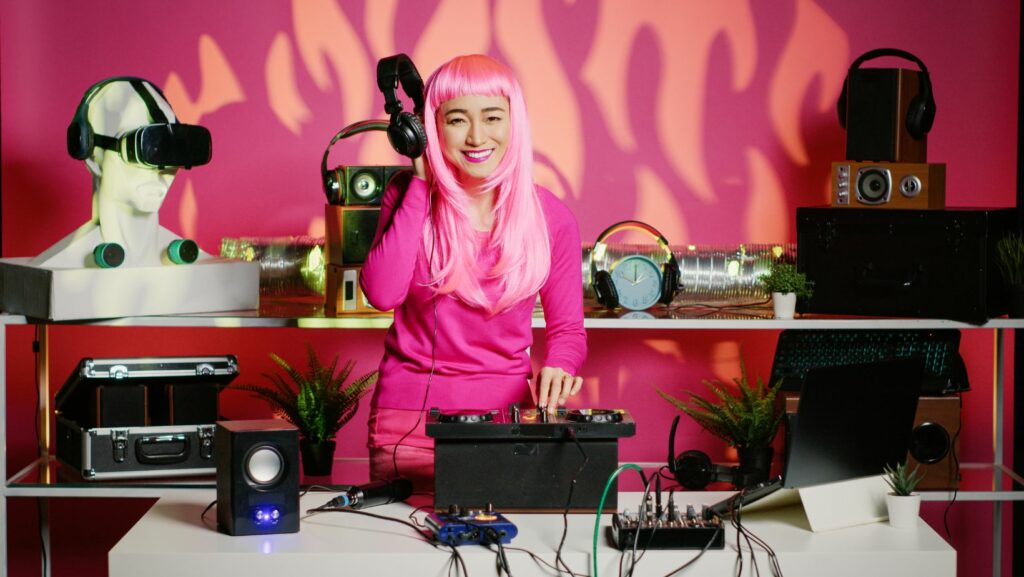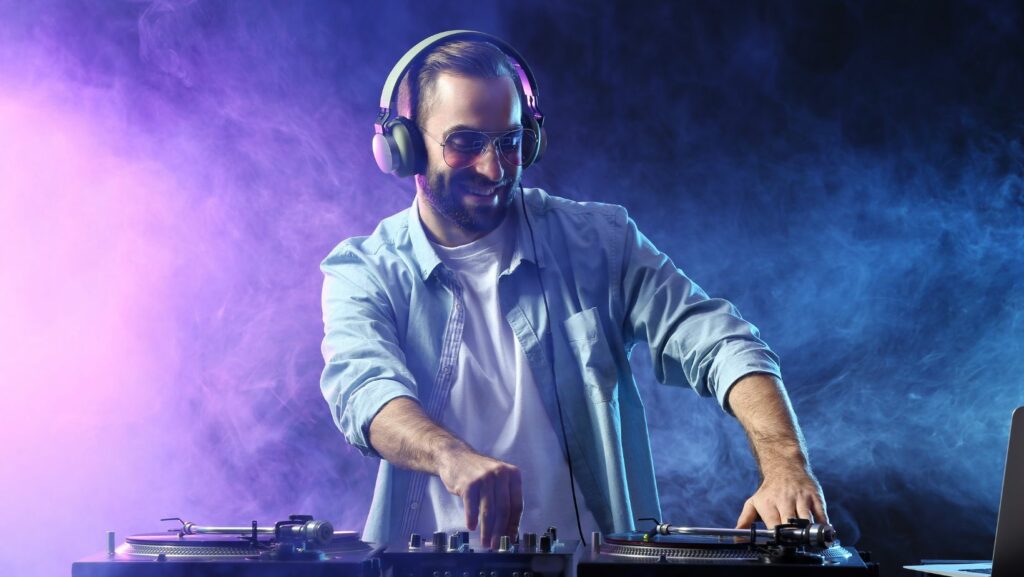It’s a brave new world in the realm of music, where artificial intelligence (AI) is striking a chord. From composing symphonies to predicting hits, AI’s role in the music industry is growing at a rapid pace. This article will explore the fascinating intersection of technology and creativity, where melodies meet machine learning.
AI in the Music Industry
From Automated Compositions to Virtual Artists
 An intriguing development fostered by AI in the music industry includes automated compositions and the advent of virtual artists. AI like OpenAI’s MuseNet showcase proficiency in creating original music by blending various styles and genres. To illustrate, consider AIVA, an AI composer, has its creations used in soundtracks for films, advertising, and games.
An intriguing development fostered by AI in the music industry includes automated compositions and the advent of virtual artists. AI like OpenAI’s MuseNet showcase proficiency in creating original music by blending various styles and genres. To illustrate, consider AIVA, an AI composer, has its creations used in soundtracks for films, advertising, and games.
Another facet where AI shines is with virtual artists. Hatsune Miku, a virtual pop star from Japan, exemplifies this trend. She’s been selling out concerts worldwide, despite not being a human. Moreover, AI-generated music is growing in recognition, with albums such as “I AM AI” by Taryn Southern, composed entirely using an AI called Amper.
Milestone Technologies Shaping Music
Advancements in AI technologies also play a pivotal role in redefining the landscape of the music industry. AI-based tools have transformed music creation, delivering convenience and efficiency to musicians. LANDR, for instance, offers AI-powered music mastering services, enabling musicians to polish their tracks to professional standards.
On the other hand, algorithms are also instrumental in predicting potential hits. These tools analyze various musical qualities, like tempo, rhythm, and harmony, to determine a track’s potential success. An instance of this is the startup HIT Prediction that uses AI algorithms to analyze songs’ potential.
Impact of AI on Music Production
Enhancing Sound Quality and Mixing
 AI applications in the music industry present a significant step towards optimizing sound quality and mixing. Landr, an AI mastering service, exemplifies this evolution. Its platform leverages AI technologies to analyze musical patterns and adjust the sound quality in songs. As a result, it amplifies the richness and clarity of tracks, thereby leading to profound effects on the listener’s experience. From fine-tuning frequencies, balancing audio levels to applying equalization, its capacity to streamline the mastering process underscores AI’s capability to enhance music production.
AI applications in the music industry present a significant step towards optimizing sound quality and mixing. Landr, an AI mastering service, exemplifies this evolution. Its platform leverages AI technologies to analyze musical patterns and adjust the sound quality in songs. As a result, it amplifies the richness and clarity of tracks, thereby leading to profound effects on the listener’s experience. From fine-tuning frequencies, balancing audio levels to applying equalization, its capacity to streamline the mastering process underscores AI’s capability to enhance music production.
Moreover, AI algorithms offer a promising avenue for sound mixing. AI tools such as iZotope’s Neutron 3 employ machine learning to analyze the instrumental interrelation within a track. Such analysis provides critical insights into mixing decisions. Consequently, it facilitates an audio balance that preserves the musicality while advancing the desired artistic intent. These instances reflect the instrumental role of AI in advancing sound quality and mixing.
Automating Composition and Arrangement
 Automation in the field of composition and arrangement represents another significant stride of AI in the music industry. AI music generation systems, like Sony’s Flow Machines and Jukin’s Jukin Composer, pave the way for computer-assisted compositions. These AI tools can generate chords, melodies, and even complete compositions. For example, the album “Hello World” by Skygge, assembled entirely with Flow Machines, illustrates the potential of AI to create music that appeals to a broad range of listeners.
Automation in the field of composition and arrangement represents another significant stride of AI in the music industry. AI music generation systems, like Sony’s Flow Machines and Jukin’s Jukin Composer, pave the way for computer-assisted compositions. These AI tools can generate chords, melodies, and even complete compositions. For example, the album “Hello World” by Skygge, assembled entirely with Flow Machines, illustrates the potential of AI to create music that appeals to a broad range of listeners.
AIVA (Artificial Intelligence Virtual Artist), another AI, allows for the creation of original pieces in a variety of genres. It explores vast musical databases to compose unique scores, providing producers and composers with a resourceful tool in enhancing their musical arrangements. Notably, its composition, “Genesis”, was the first AI-created piece recognized by a musical author’s rights organization.
Furthermore, OpenAI’s MuseNet showcases AI’s ability to generate complex and multi-instrumental compositions. Illuminating a potential new direction for music creation, MuseNet introduces melody, style, and rhythm alterations that enrich the composition process.
AI’s Role in Talent Discovery and Promotion
Beyond production, AI plays a significant part in talent discovery and promotion in the music industry. Platforms such as Spotify use AI-driven algorithms for predictive analytics, analyzing listener’s preferences and suggesting similar music. Notably, instrumental in unearthing new talents, the process enables emerging artists to reach a wider audience. Similarly, AI-powered apps like Amuse provide insights on track performances and audience demographics, facilitating targeted promotion. A further shift is observed in online talent shows like AI Song Contest, where entrants compose AI-generated music, showcasing AI’s role not only in finding but forging talent in the music industry.



